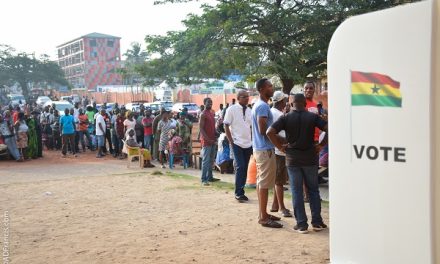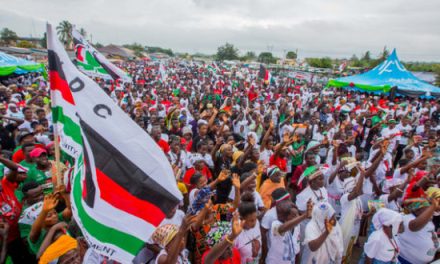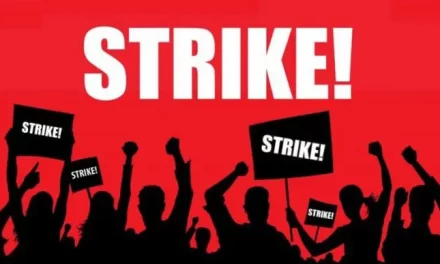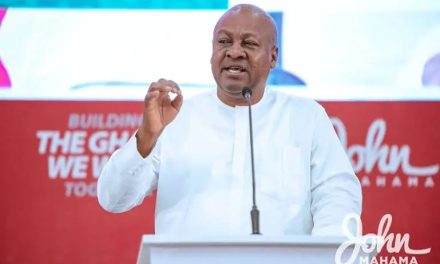
Women’s Manifesto Coalition Decries Decline In Women Representation In Politics4 min read
Posted by time97.7fm | February 21, 2024 1:32 pm | Politics | 0 |
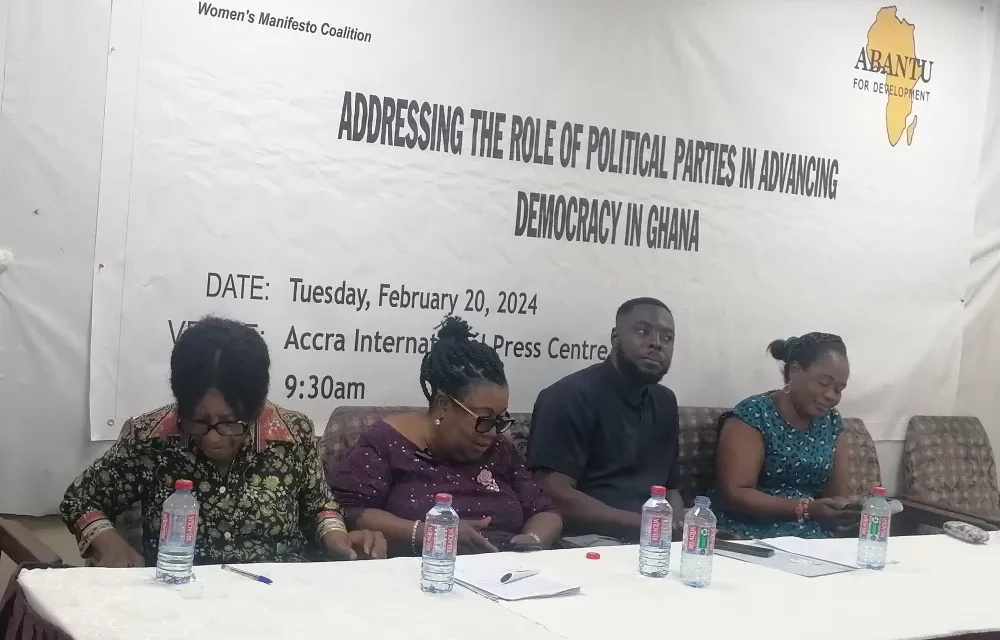
The Women’s Manifesto Coalition (WMC) is calling on Political Parties in the country to ensure equal representation of both women and men, emphasising the importance of expanding their roles beyond being mere “gatekeepers” of democratic ideals.
The Coalition criticises political parties for neglecting gender equality and women’s rights in their agendas for building a democratic nation.
Speaking at a news conference in Accra, the Convener of the Coalition, Hamida Harrison, pointed out that recent internal political party primaries of the two major political parties, the New Patriotic Party (NPP) and the National Democratic Congress (NDC), have shown a significant decline in women’s representation. This underrepresentation, she emphasised, hampers women’s ability to contribute to critical decisions for national development.
As the country prepares for the 2024 elections, women have faced significant setbacks as candidates in the recent primaries organised by the two main parties, the NPP and the NDC. The Women Manifestos Coalition thinks the trend diminishes women’s equal opportunities for inclusion and reinforces concerns about their underrepresentation in decision-making roles.
Globally, the consensus is that political parties are a critical element in the building of participatory democracies. The UN Resolution of the General Assembly 66/130 on Women and Political Participation urges states, among others, to “strongly encourage political parties to remove all barriers that directly or indirectly discriminate against the participation of women, to develop their capacity to analyses issues from a gender perspective, and to adopt policies, as appropriate, to promote the ability of women to participate fully at all levels of decision-making within those political parties”.
Despite some initiatives, such as reduced filing fees for women, progress still remains slow and limited. Convener of the Women’s Manifesto Coalition, Hamida Harrison, believes parties have provided little support for women’s political empowerment.
“There are possibilities in the country which could be explored to widen the space for women to make it possible for women to have more opportunities, but we are seeing that slowly that doors are being closed, if you have to go and pay 500 for each delegate, do you have that kind of money? so the door is closed. Political parties have a decisive role to play in enhancing women’s political representation and heightened visibility in high profile leadership position within the parties and in government,” Mrs Harrison noted.

The Convenor said the number of women represented in parties’ internal hierarchies and in elected positions is invariably small, as a consequence of political parties falling to take the issue of women’s under-representation, both in their internal leadership and in elected positions, as a serious issue of political concern.
“Despite the many shortcomings, political parties are still key players in parliamentary democracies. Political parties remain central for representing women’s interests in political arenas and for granting them access to decision-making positions. The question is how can these institutions be made to turn into agents who are interested in achieving gender equality?” She added.
Consultant on Electoral Affairs and Former Commissioner of the Electoral Commission, Pauline Adobea Dadzawa, acknowledged the challenges hindering progress but emphasised the necessity for inclusivity and reforms to foster change.
“Gender issues have become very topical the past few decades, and they are considered the human rights issue considering that 51 percent or more of our population are women. The journey towards achieving the gender equality, particularly in political parties is almost becoming imperative, and it’s hard to navigate a complex landscape of political social and cultural challenges. When you recognise this challenge, it is the first step towards fostering meaningful change. Political parties can do that by shaping the merits of inclusivity and diversity within Democratic practice. So if political parties are able to put in their arrangements, a way of making it easier for women to stand for primaries, for example, it will serve as catalysts for women in their parties to want to stand and be encouraged to stand,” Mrs Adobea Dadzawa indicated.

The Coalition contends that political parties have evolved into rigid structures favored by wealthy and powerful male groups, making it difficult for women to penetrate the competitive landscape due to financial constraints.






